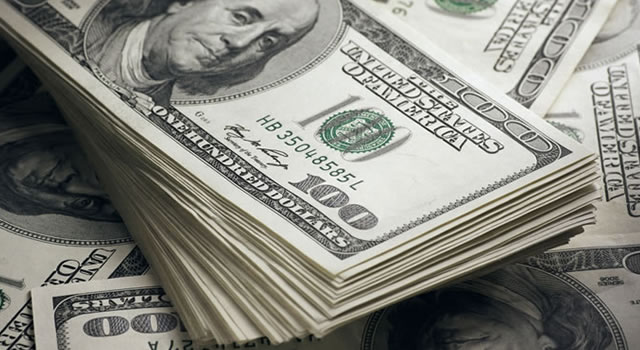Business
Nigeria’s new president to meet $29.1bn forex reserves, IMF predicts

Nigeria’s next leader after the administration of President Muhammdu Buhari could meet only $29.1. billion in the external reserves the International Monetary Fund has forecasted.
The prediction was disclosed in its ‘Nigeria Staff Report for the 2021 Article IV Consultation’ report published on its website and obtained on Saturday.
According to IMF, the significant drop will occur in 2024 on the back of lower oil prices, restricted Eurobond market access, and higher capital outflows.
It also noted that Nigeria’s external position is weaker as external buffers are limited.
Part of the report reads: “High-interest payments relative to fiscal revenues expose Nigeria to interest rate and growth shocks.
“A downside scenario assuming lower oil prices, restricted Eurobond market access, and higher capital outflows could drop reserves to $29.1bn in 2024 with repayments to the Fund rising to 3.7 per cent of exports, 6.3 per cent of reserves, and 7.9 per cent of external debt service.”
The Washington based lender also stressed on the gaps in information on FX swaps pose a risk to this assessment, although the authorities assess these swaps to be negligible.
Read also: Naira falls to N580 per dollar, as CBN moves to stop sale of forex to banks
It said, “Nigeria’s external position is assessed to be weaker than warranted by fundamentals. External buffers are limited, with FX reserves projected to remain below 100 percent of the IMF’s ARA metric in the medium term.
“Given still significant naira asset holdings of FPIs, estimated at $16.9bn as of September 2021, Nigeria remains vulnerable to capital outflow pressures notwithstanding the authorities’ steady clearing of FX payments backlogs to FPIs.
“Further drains on FX reserves could come from existing FX swap arrangements for which details were not available,” IMF stated.
The IMF said to boost its external position, Nigeria must establish a unified and market-clearing exchange rate, together with policy clarity.
It added that to preserve competitiveness, any exchange rate adjustment should be accompanied by clear communications regarding exchange rate policy.
Join the conversation
Support Ripples Nigeria, hold up solutions journalism
Balanced, fearless journalism driven by data comes at huge financial costs.
As a media platform, we hold leadership accountable and will not trade the right to press freedom and free speech for a piece of cake.
If you like what we do, and are ready to uphold solutions journalism, kindly donate to the Ripples Nigeria cause.
Your support would help to ensure that citizens and institutions continue to have free access to credible and reliable information for societal development.
























